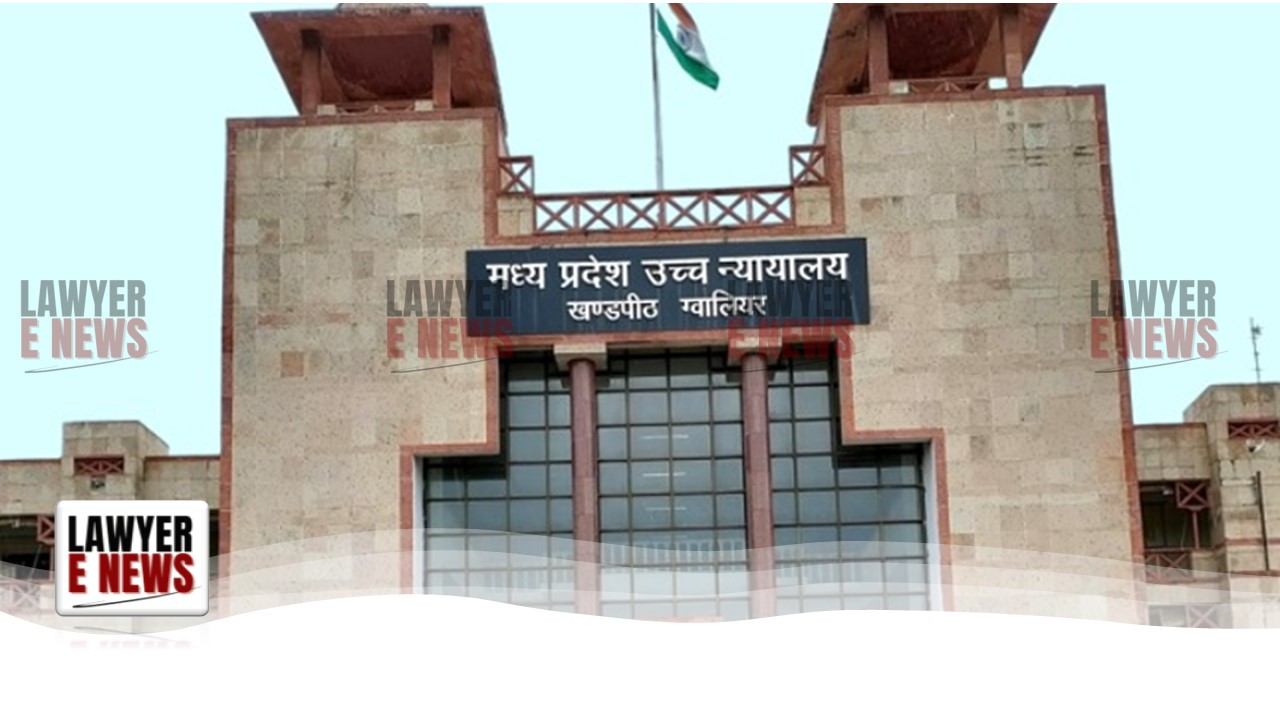-
by Admin
15 February 2026 5:35 AM



Madhya Pradesh High Court dismissed a second appeal filed by Bhagwan, a defendant seeking protection under Section 53A of the Transfer of Property Act, 1882. Justice Pranay Verma ruled that Bhagwan, who had entered into an agreement to purchase agricultural land in 1986, failed to demonstrate readiness and willingness to perform his part of the contract, rendering him ineligible for protection under the doctrine of part performance.
The decision upheld the lower appellate court’s decree, affirming the plaintiffs’ title and granting possession of the disputed land to them.
The case involved a plot of agricultural land in Dewas district, Madhya Pradesh, owned by Umrao Singh. In 1986, Singh entered into an agreement to sell the land to Bhagwan for ₹31,500, granting possession to Bhagwan under the agreement. Singh, however, did not execute the sale deed. After Singh's death in 2002, his heirs filed a suit seeking declaration of ownership and recovery of possession, alleging that Bhagwan's claim was invalid as he failed to fulfill essential conditions of the agreement.
Bhagwan argued that he had paid the full sale consideration and taken possession of the land, asserting that he was entitled to protection under Section 53A of the Transfer of Property Act. He further claimed to have repeatedly requested the execution of the sale deed, but the seller avoided completing the transaction.
Justice Verma held that Bhagwan’s failure to take affirmative steps over 16 years from the agreement date until the plaintiffs filed their suit demonstrated a lack of readiness and willingness to perform his part of the contract. The Court observed that mere possession and payment of consideration did not suffice to invoke the protections of Section 53A.
The Court emphasized, “The doctrine of part performance under Section 53A requires not only possession and payment of consideration but also continuous readiness and willingness to perform contractual obligations.” It noted that Bhagwan had not issued any formal notice to Umrao Singh or his heirs for execution of the sale deed, nor had he pleaded or proven his willingness to complete the transaction.
The High Court referred to precedents, including the Supreme Court’s rulings in Shrimant Shamrao Suryavanshi v. Prahlad Bhairoba Suryavanshi and A. Lewis v. M.T. Ramamurthy, which established that the protections under Section 53A are contingent on strict compliance with its prerequisites. Bhagwan’s inaction, the Court noted, constituted a significant breach of these principles.
The Court found that Bhagwan’s claim lacked credible evidence of any steps taken to fulfill his part of the agreement, ruling that he could not retain possession of the land under the doctrine of part performance.
Dismissing the appeal, the Court affirmed the lower court’s decree in favor of the plaintiffs, allowing them to recover possession of the land. It also clarified that the protections under Section 53A are not a substitute for seeking specific performance of a contract and cannot be invoked as a defense when the transferee defaults on contractual obligations.
This decision reinforces the rigorous conditions necessary for invoking the doctrine of part performance under Section 53A. It highlights the importance of continuous and demonstrable readiness and willingness to fulfill contractual commitments, emphasizing that passive possession and payment alone are insufficient to secure protection.
Date of Decision: November 20, 2024.
